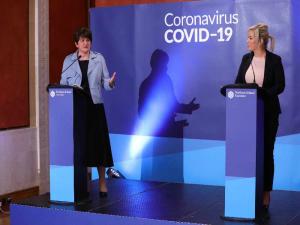
By David Young, PA
Northern Ireland’s political leaders have clashed amid a blame game over the region’s spiralling Covid-19 infection rates.
First Minister Arlene Foster claimed a drop in compliance with regulations was down to the attendance of senior Sinn Fein figures at the funeral of IRA veteran Bobby Storey at a time when strict limits on numbers applied.
The DUP leader, who also spoke of a failure of society as a whole, made the claims after Sinn Fein Deputy First Minister Michelle O’Neill accused the DUP of acting against public health advice in opposing more robust measures earlier in the pandemic.
The clashes came a day after the Executive unanimously agreed to impose a sweeping six-week lockdown which will come into force on Boxing Day.
The first week of those measures will see the toughest lockdown yet in Northern Ireland, with a form of curfew in operation from 8pm, shops closed from that time and all indoor and outdoor gatherings prohibited until 6am.
Non-essential retail will close throughout the six weeks, as will close contact services. Hospitality outlets will be limited to takeaway services.
Organised sport will also be banned, with elite sport included in the prohibition for the first week.
Mrs Foster and Ms O’Neill both took part in a virtual meeting of the North South Ministerial Council alongside Irish Government leaders on Friday.
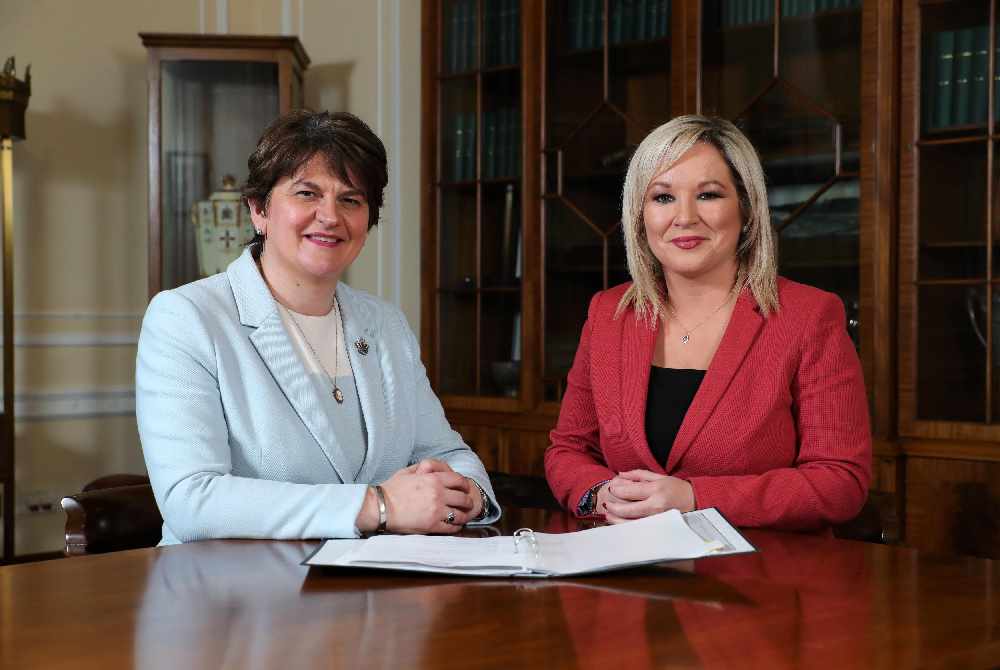
At a press conference following the meeting, Mrs Foster said: “We do find ourselves in a particularly bad place, I very much regret that that is the case and it’s a failure of society as a whole that we have had to introduce these restrictions in the draconian way that they are coming in on Boxing night.
“Last night we did take a very draconian decision, one which I never thought we would have to take. I very much regret the fact that we have had to take it, but we needed to take it and we’re facing a great deal of difficulty across Northern Ireland.”
Mrs Foster laid the blame for falling compliance at Sinn Fein’s door.
“We are facing very, very difficult times across Northern Ireland,” said the DUP leader.
“Of course before the end of June last year compliance in Northern Ireland was very good and in fact we were the envy of other colleagues in the United Kingdom.
“But at the end of June, one party, Sinn Fein, decided whilst they made the laws they were also above the laws. And now we find ourselves in a situation where messaging is very difficult. We’ve seen a breakdown in compliance and I very, very much regret that to be the case.”
Earlier, Ms O’Neill had told RTE the DUP had blocked tougher coronavirus measures earlier in the pandemic.
“Let’s not tar everybody with the same brush,” she said.
“I think it’s really important to distinguish what has happened the whole way through the pandemic. I have never deviated from the public health advice but what we have seen in a five-party coalition, the DUP have worked against the entire public health team, they have worked against the entire Executive, because there is a collective will among all the other parties in the Executive to do more at different times in the pandemic.”
Later, at the press conference, Ms O’Neill was asked whether her claim that she has never deviated from the public health advice was credible given her attendance at the Storey funeral in June.
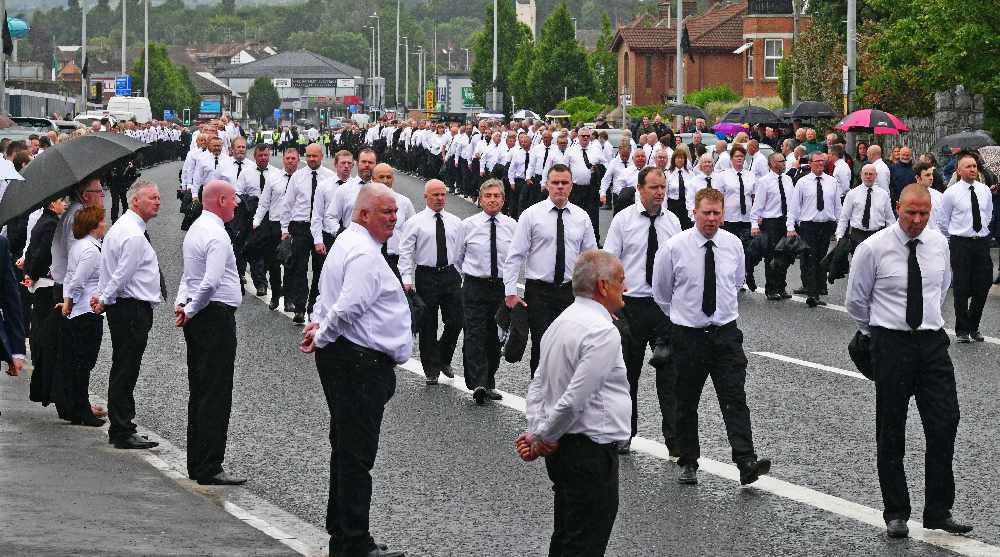
Ms O’Neill was interviewed by police earlier this month as part of their investigation into alleged regulation breaches at the event in west Belfast.
She replied: “In terms of following the public health advice, I said I’ve never deviated from the advice of the chief medical officer when he brought forward, or the health team brought forward, proposals for how we respond to Covid.”
Ms O’Neill was the only one the two leaders to announce the lockdown measures to the public on Thursday.
Explaining her non-appearance before the cameras, Mrs Foster said there had remained some uncertainty about details of the measures and she did not want to create any confusion before clarity had been secured.
Earlier, Stormont’s chief scientific adviser said Northern Ireland would have witnessed thousands of Covid-19 deaths if no action had been taken to suppress the virus.
Professor Ian Young said the region’s already over-capacity health service would have been completely swamped in January.
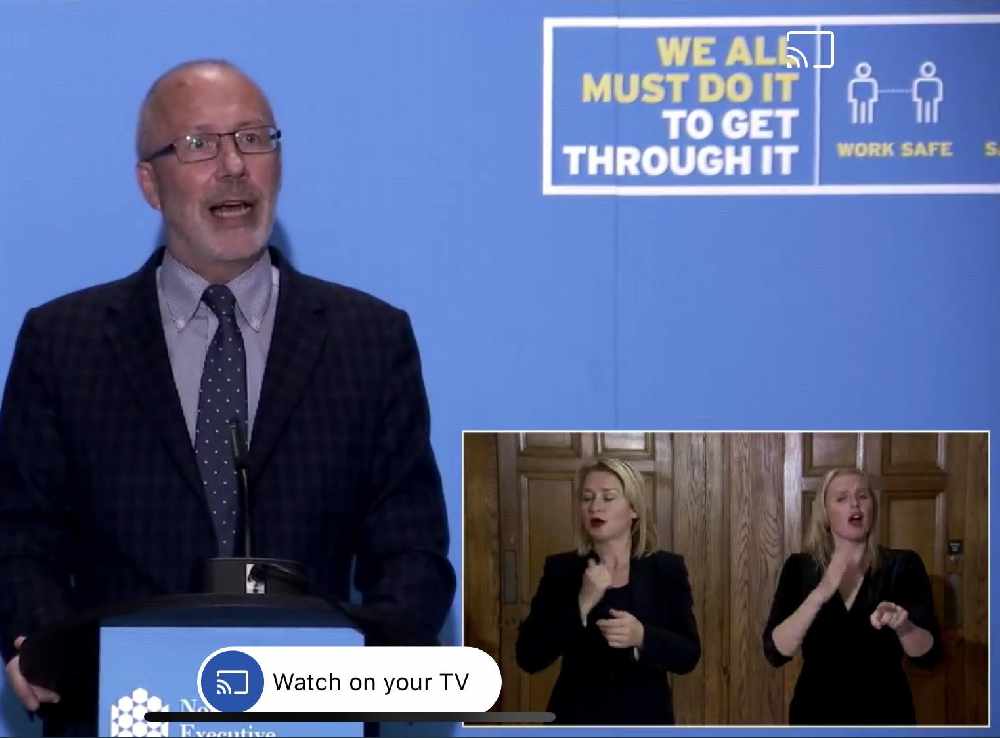
“Of all of the things that we look at in terms of modelling, the number of deaths is the one that is most difficult to predict. It would, if no action were taken – which is inconceivable – have been very large, certainly within the thousands, if no action was taken,” he said.
Prof Young told BBC Radio Ulster the current number of Covid-19 inpatients of between 400 and 500 would have soared to between 3,000 and 4,000 by the end of January if no action had been taken.
“In terms of the total number of general and acute beds, the type of beds that would have been required in hospital, the number of patients needing beds, would have exceeded the total number of beds that were available,” he added.
Northern Ireland’s reproduction number (R) is currently between 1.1 and 1.2.
A further 12 deaths involving Covid-19 were reported on Friday, along with another 510 cases of the virus.
The hospital occupancy rate stood at 102%.
On Tuesday, queues of ambulances were witnessed at accident and emergency departments (EDs) across Northern Ireland as patients were treated in car parks due to a lack of capacity inside hospitals.
At one point, 17 ambulances containing patients were lined up outside the ED at Antrim Area Hospital.


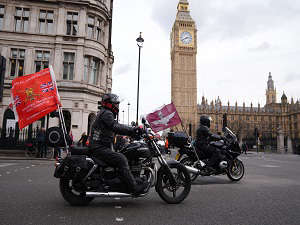 Bikers to descend on Westminster for veterans protest against Legacy Act repeal
Bikers to descend on Westminster for veterans protest against Legacy Act repeal
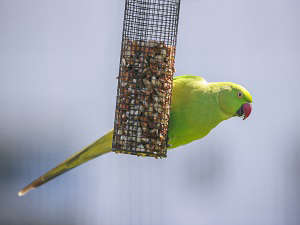 Guidance sought over future of colourful parakeets in Belfast park
Guidance sought over future of colourful parakeets in Belfast park
 Woman released after questioning over pipe bombs in Co Down
Woman released after questioning over pipe bombs in Co Down
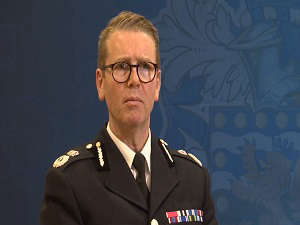 Suspended chief constable will not be prosecuted over alleged sexual offences
Suspended chief constable will not be prosecuted over alleged sexual offences
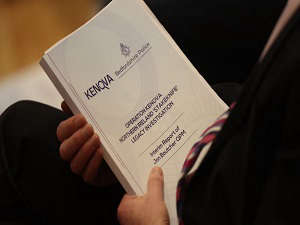 MI5 files not deliberately withheld from Stakeknife probe, review concludes
MI5 files not deliberately withheld from Stakeknife probe, review concludes